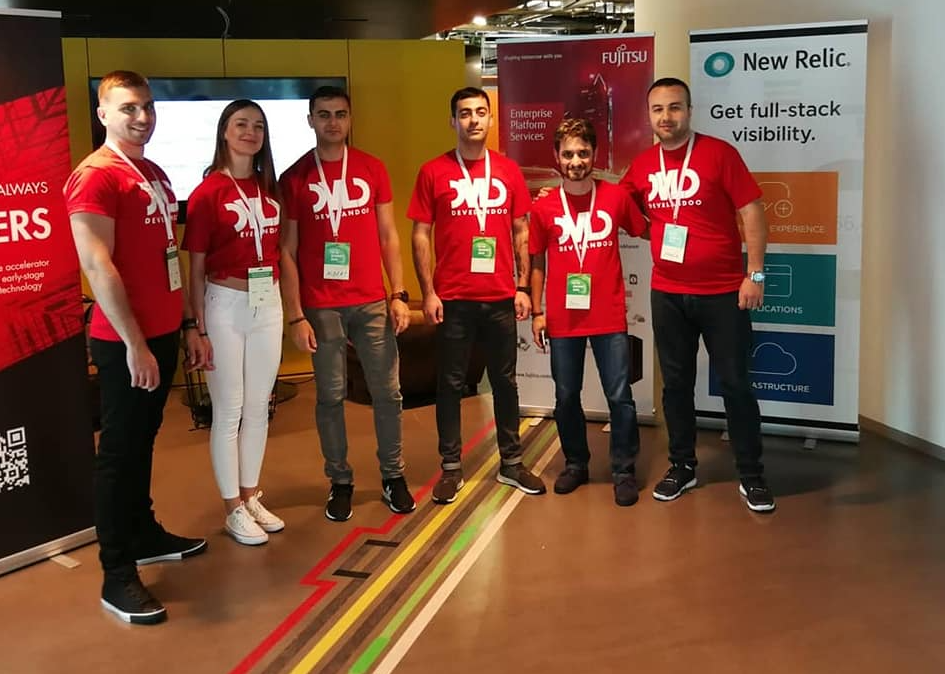‘’By 2020 30% of CIOs will include AI in their top five investment priorities, and 30% of new development projects will have AI components delivered by joint teams of data scientists and programmers,’’ predicts Gartner, the world’s leading research and advisory company in IT space. Today we are sharing Bernd Wunderlich’s talk presented at M-AI Summit 2018, which was hosted by the Develandoo Innovation Lab. He provided his insights on what we can and can’t do with AI speaking to the predictions made as a result of Gartner’s research.
Bernd Wunderlich is an IoT evangelist with more than 23 years of experience in consulting, product management, development, marketing, sales, and service. Currently, at Gartner, he is the worldwide Practice Lead for IoT. Prior to joining Gartner, Mr. Wunderlich worked for 11 years at IBM and 8 years at Siemens in various management functions. In his latest role at IBM, as a part of the IBM Global Business Services in Europe, Mr. Wunderlich was responsible for building the Watson Internet of Things (IoT) services business and the Industry Lab in the Watson IoT Center. Prior to IBM, he worked in various positions at Siemens and Bosch. Mr. Wunderlich holds an MBA from Henley Management College and a Dipl.-Ing. In Computer Engineering from the University of Paderborn. Mr. Wunderlich is fluent in German (his native language), English (written and spoken), and Spanish (written and spoken).
‘’I support companies in how they should implement strategies and digital transformation, how they can scale with this. And at the moment my focus is on the manufacturing market, where I support big manufacturers in how they can basically implement their next level of automation, using technologies such as IoT and AI. I’m focused now with some of the largest manufacturers and they really have the vision where they can fully automate their manufacturing plans with this technology, and basically in 10-20 years there will be no more people working there who do things manually,’’ said Wunderlich in his introduction.
He started with Gartner’s definition of artificial intelligence, speaking to what Gartner recommends to do with and where AI is being applied. According to Gartner, artificial intelligence projects grant organizations superpowers to classify and predict in ways workers can’t achieve alone.
‘’So it basically means that AI supports workers, but also we see some standard processes and tasks where they can be replaced by AI. By the way, Gartner does not predict that AI will replace jobs but it will rather generate jobs.’’
He further drew the audience’s attention to the fact that AI is now in the stage of explorative projects. 85% of those projects never leave that explorative stage and the biggest issue for the companies is how they can scale it.
Wunderlich also presented some information regarding AI-related research conducted among their customers. ‘’A lot of focus is on smart automation, then comes increased performance,’’ says Wunderlich.
And in this context, he mentioned that the major step in 2016 was made by Google’s DeepMind which beat the world’s greatest Go player using reinforcement learning and self-testing. ‘’It played itself in games and identified likely the best strategies against other strategies.”
According to Wunderlich, AI is a technology which emulates human performance, typically by learning, coming to its own conclusions, understanding complex content, engaging in natural dialogs with people, enhancing human cognitive performance, and replacing people in the execution of non-routine tasks. Our speaker also introduced a short evolution of AI, starting from 1960, the start of AI research/initial AI concepts. This period lasted for 20 years up to 1980, after which comes 1980 to 2020, the period of Narrow AI which is all about working on one specific task within a certain industry or process and helping it improve. Gartner predicts that only after 2020 will the turn come for general AI which applies intelligence to any problem near to human level intelligence, according to Wunderlich’s.
”There were various attempts to get general AI going but they were all failed and we can definitely say that in the coming few years the focus will be kept on narrow AI.”
Another interesting point from Wunderlich’s talk was identifying the business goals that organizations are pursuing within AI: improved speed and efficiency, better data processing and analytics, enhanced customer experience and engagement. Meanwhile skill gap, use case identification, strategy, and funding are key challenges to be overcome for organisations to adopt AI (54%-lack of necessary staff skills, 37%- defining AI strategy, 35%-identifying use cases for AI).
We had summed up some interesting points from our speaker’s talk and if they caught your interest, you can check out the full video of his presentation on our youtube channel.
We are thankful to all our sponsors and participants and the speakers for attending our Munich-AI Summit 2018, the one and only free event at Munich related to Artificial Intelligence. We invite to our AI platform all representatives in the field of Artificial Intelligence, AI experts, and simply those who are interested in the exchange of ideas within AI innovation, and big data analytics in 2019. Initial registration for Munich-AI Summit 2019 is already open on our meetup page. https://www.meetup.com/ai-munich/events/251011537/
See you all there.
- Topics:
- Artificial Intelligence
- M-AI Summit



